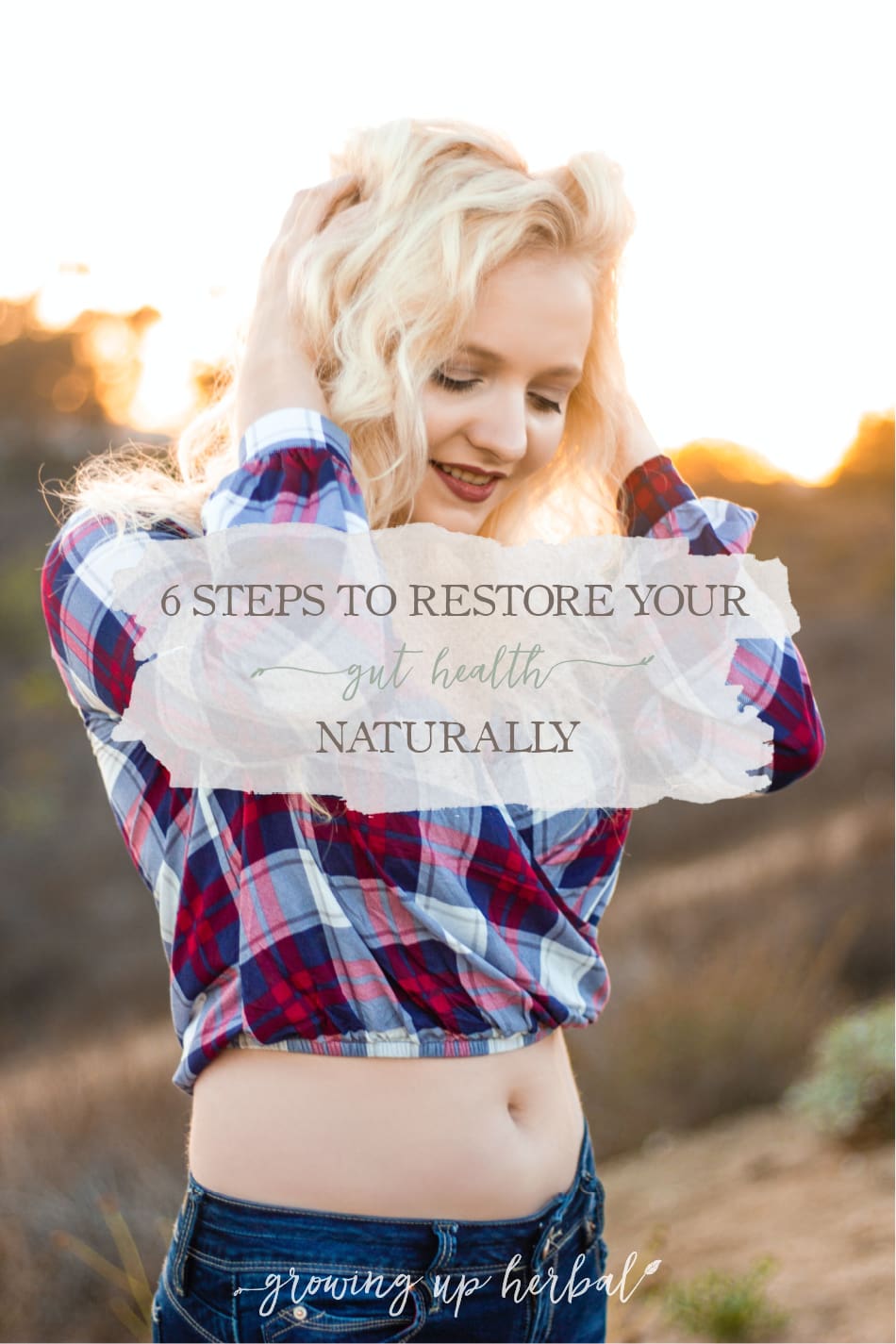
Can I ask you 3 simple questions?
First, do you have any of the following symptoms?
- gas/bloating
- constipation
- depression/anxiety
- brain fog
- vitamin/mineral deficiencies (specifically vitamin D, K, B12, B7, and magnesium)
- acne/eczema
- autoimmune issues such as rheumatoid arthritis or irritable bowel syndrome
- sugar/carb cravings
Next, do you have chronic stress in your life?
Lastly, have you ever used antibiotics, even if only one time?
If we’re honest with ourselves, I think we can all say “yes” to one if not more of the symptoms mentioned above, and I’m fairly certain that every single adult knows what stress is like. And do we really need to mention antibiotics? I mean, in the not too recent past, they were the “miracle drug,” and doctors handed them out like candy. I’d say 95% of the population has had at least one round of antibiotics in their life.
Okay, so now I want to talk about gut health.
We ALL Have Gut Work to Do

If you answered yes to any of the above questions, then chances are, you’re gut is NOT in a balanced state of health. I know mine isn’t, but why is this important or even something we should care about?
Our guts play a HUGE role in not only how we feel physically but emotionally as well.
First off, if our guts are out of balance, then we may not properly digest our foods or absorb the nutrients from the foods we do digest. That means we’re not feeding ourselves properly and that can lead to a state of unhealth and eventually disease.
Next, if our gut microbiome (healthy bacteria) is out of whack, then bad bacteria can take over causing brain fog, sugar cravings (hello, weight gain), and decreased serotonin levels. Serotonin is the “happy” neurotransmitter, and 90% of it is created in our gut lining!
Lastly, if our gut isn’t functioning properly, then we’re not removing toxins from our body efficiently enough, and that can lead to a state of unhealth as well. Our digestive system is one of five pathways of elimination in the body, and when it’s not working as it should, it puts a burden on the other body systems and allows toxins to stay in the body longer than they should.
Now, I can’t remember the last time I’ve used an antibiotic, but I certainly deal with stress on a regular basis and have plenty of the symptoms mentioned in the above list. That means I have some sort of imbalance, and I need to do my part to repair my gut before worse health issues arise.
Taking The First Steps Toward Better Gut Health Naturally

I recently wrote a post sharing my health and wellness plans for the year. Now, the more I learn about holistic health and herbalism, the more I realize that good ole Hippocrates was on to something when he said, “all disease begins in the gut.”
It seems like every health condition we know of could be eased if not completely disappear if we focused on the health of our gut!
Because of that, gut health is one of my top priorities this year.
If I’m honest, this feels like a never-ending focus, but when I feel down in the dumps about that, I realize that our health isn’t set on cruise control. We have to continue to work at our health, even when it’s good, to keep it that way.
So that brings me back to the gut — my gut specifically — and maybe yours too. My main goal this year is to restore my gut health naturally and work daily to keep it healthy. But how am I going to do that exactly?
Focus On Restoring The Gut Lining
The key to gut health lies in the state of the gut lining. Yes, the tissue that lines the insides of the intestinal tract.
Repairing one’s gut lining isn’t hard, but it does take time and a willingness to put in the work.
Our gut lining has a huge job to do every day, monitoring what gets through and what doesn’t, keeping microbes balanced, and producing mood-boosting chemicals for our body.
Problems arise when the gut health hasn’t been supported and the lining of the gut becomes compromised.
When this happens, cell junctions in the gut lining start to widen letting large food particles through the intestinal lining and into the bloodstream that the body reacts to. This reaction triggers the body’s immune system and an inflammatory response occurs in the body until the immune system can remove the offending particles.
This is known as increased gut permeability or leaky gut.
At first, you may notice some little annoying symptoms that don’t translate into anything major, but over time, this condition can lead to autoimmune symptoms, systemic inflammation issues, oxalate problems, migraines, skin issues, and overall bad health.
If you want to read more about leaky gut, Paleo Leap has a great article on it here.
So how do you start repairing your gut lining and reversing leaky gut?
Below I’ll share some steps you can take to keep your gut in good working order (or help repair it if it’s already struggling).
6 Steps to Repair Your Gut Health Naturally
The following 6 steps are all things that will support your gut health naturally, helping to benefit gut permeability and your microbiome as well. Feel free to tackle these steps in any order you wish.

1. Cut Out the Sugar
If you’re wondering just how bad can sugar really be, let me tell you, it isn’t your body’s friend. Now I’m not anti-sugar. I think it has its place here and there, but if you struggle with keeping sugar balanced in your life (like I sometimes do), then pay attention to this area.
Processed sugar is an inflammatory substance, and it feeds yeast and bad gut bacteria in the small intestines which, eventually, has a negative effect on your gut lining. You can’t keep eating sugar and expect your gut lining to repair itself.
When you’re focusing on repairing your gut naturally, it will be necessary to cut out sugar for a while until the gut heals. This will help to reduce inflammation in the body and not feed yeast and bad bacteria as much. Then the gut can begin to heal.
When cutting out sugars in the diet, it’s best to replace refined, processed sugar with sugar-free sweeteners for the time being. Stevia and erythritol seem to be the most gentle of these types of sugar substitutes. However, if they don’t work for you, you’ll just have to try different things to find what works best for you.
If you don’t have major gut issues, fruits and natural sugars like honey, date paste, or coconut sugar should be fine in moderation. However, when you’re working to repair your gut, it’s best to avoid as much processed sugar as possible and stick with the sugar-free sweeteners for a while.
If you’ve been diagnosed with leaky gut or autoimmune diseases or you have Candida overgrowth, it may be necessary to remove even natural forms of sugar from your diet until you are back on track again. After your gut is repaired, you can add natural forms of sugar back into your diet in moderate amounts, but it’s always wise to keep this particular treat in check. It’s easy to overdo!
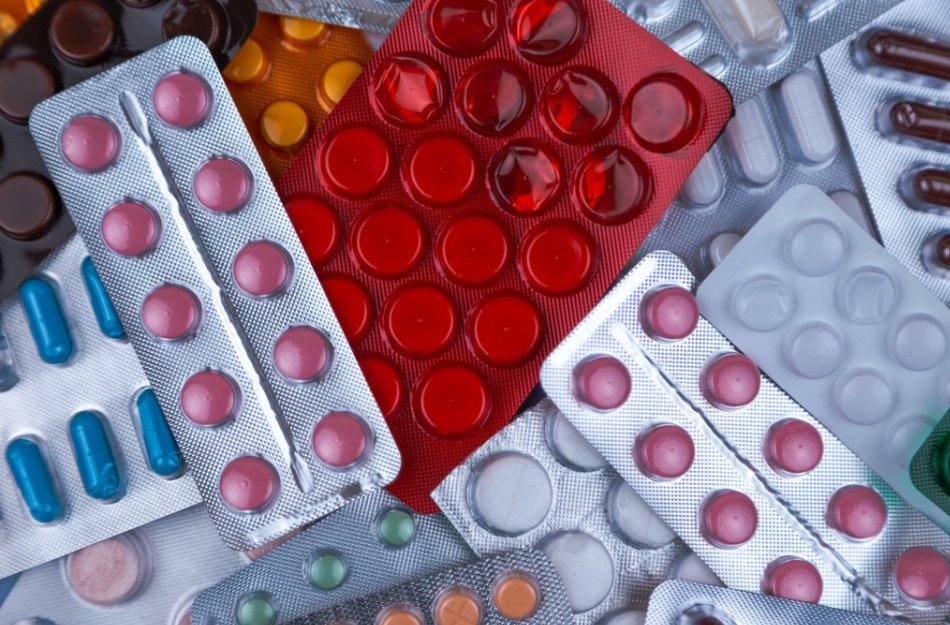
2. Cut out Unnecessary Medications
Medicines like aspirin, ibuprofen, acetaminophen, antacids, and prescription meds (particularly antibiotics) will tear up your gut lining faster than anything else.
If you are on prescription medication that negatively affects your gut, you’ll need to discuss finding a good substitute with your doctor before making any changes. If you’re not able to find a substitute, then you’ll need to really work on the other steps to repairing the gut and do the best you can.
However, if you are using any of the above over-the-counter drugs regularly, it’s just going to make it worse. Yes, even one dose of aspirin has been shown to negatively affect gut permeability (Sequeira et al., 2012), and studies have also shown that common non-steroidal anti-inflammatory drugs (NSAIDs) negatively affect the gut microbiome as well (Rogers & Aronoff, 2016)!
To support your gut health naturally, start finding more natural options as substitutes for these drugs when possible. I’m not saying you’ll never need to take them, but if you can cut back on them, your gut will thank you!
Drink enough water and stay hydrated to minimize headaches. If you’re not a fan of water, herbal tea, water kefir, and homemade electrolyte drinks can all be used instead. Getting enough sleep, supporting your liver health, and not overdoing alcohol will also help when it comes to headaches. If those things don’t work and you find yourself with a headache, here are some natural headache options that may help. You can even take an herbal approach to headaches as well.
If you’re taking these drugs for muscle pain relief, herbal muscle rubs or growing pain ointments can help as can the use of magnesium oils.
Learn more about how to keep infections at bay with herbs so you can avoid antibiotics, and if you use antacids regularly to help with heartburn, I would highly encourage you to look into natural substitutions for that as well.
Anything you can do to reduce the number of medications you take, whether prescription or over-the-counter, is going to be better for your overall health in the long run.
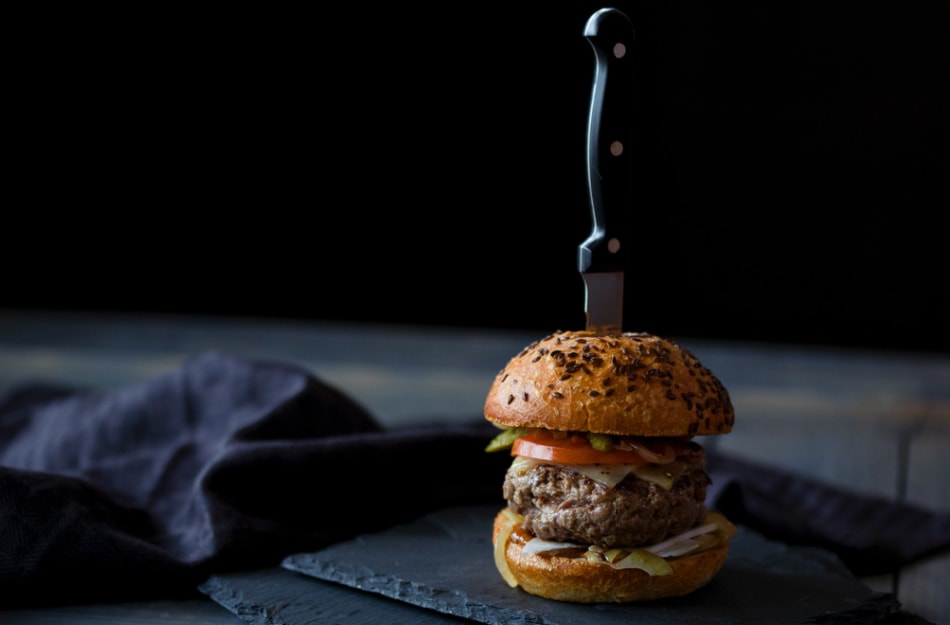
3. Reduce Foods that Cause Inflammation
Foods that cause inflammation include things like fast food, sugars, additives, chemicals to enhance flavor and preservatives, and hydrogenated oils. Sometimes, depending on how much damage has been done to the gut, even normal foods like bread, tomatoes, or beans can irritate the gut.
You can cut out these inflammatory items entirely by not eating packaged items, avoiding foods with additives and chemical flavors (check that ingredients list!), cooking from home more, or avoiding foods that irritate you all together.
In the end, you will be left with real food ingredients like fresh fruits, vegetables, and meats, herbs, and spices. Not only will this benefit your gut health, but it will likely benefit your weight and mood as well.
If you’re new to the real food lifestyle, check out the following 4-part series I wrote that will give you a rundown on what it’s all about and how to make it work for you!
- What Exactly Is Real Food?
- 6 Steps To Working Your Way Into Eating Real Food
- How To Afford Eating Real Food
- Real Food Resources To Help You Get Started Eating Real Food
If you’re not sure what foods your body is sensitive to, an elimination diet may be in order. Here’s a detailed article about how to do an elimination diet from Precision Nutrition.

4. Give Intermediate Fasting A Go
Another reason your gut could be inflamed and out of balance is that it’s always full of food and constantly needing to work. If this is the case, you may find some benefit to intermittent fasting.
Intermittent fasting is where you only eat food during a certain time period each day. This gives your digestive system time to rest and repair. It also helps your blood sugar stay more balanced which helps to lower inflammation.
Intermediate fasting is easy to incorporate into your day. You could start by simply skipping breakfast, or you could pick a day of the week to fast allowing your gut time to repair.
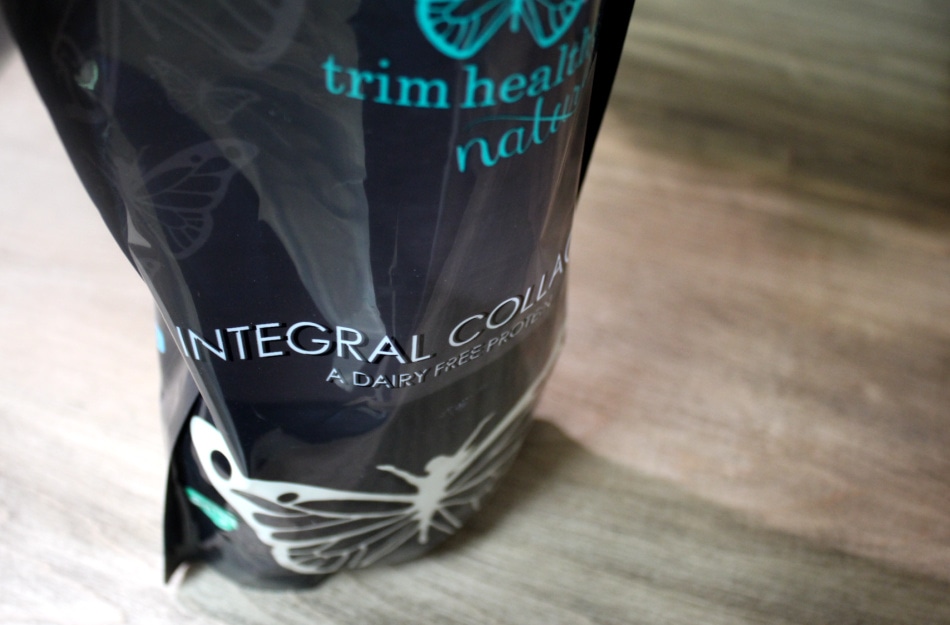
5. Help your Gut Lining Repair with Collagen & Herbs
Once you stop ingesting things that have a negative impact on your gut lining, your body may need some help in repairing the damage that has already occurred.
Adding collagen into your day is an easy and effective way to help repair this damage. Collagen is a protein that gives the body the proper building blocks (amino acids) to start tightening those gut lining junctions.
You can easily add collagen into your morning coffee, breakfast smoothies, or even in your bowl of soup at dinner. The key is to use it every single day. Not only will it benefit your gut, but it will benefit your joints and skin as well. Talk about a triple win!!
In the past, I’ve purchased collagen from Great Lakes, Perfect Supplements, Trim Healthy Mama, and Plexus.
Where herbs are concerned, astringent, vulnerary, and demulcent herbs are extremely valuable for tightening and toning the junctions of the gut mucosal lining as well as soothing damage that has already occurred in the gut.
I would always recommend finding and using herbs that have both astringent/vulnerary and demulcent properties, such as plantain (Plantago major) leaf and comfrey (Symphylum officinale) leaf, but seeing how there aren’t many herbs that have BOTH of those properties, chances are you’re going to need to use more than one herb in a formula.
Oak (Quercus alba) bark, blackberry (Rubus spp.) root, raspberry (Rubus idaeus) leaf, and cultivated goldenseal (Hydrastis canadensis) root are all great astringent/vulnerary herbs for the mucosal lining. Marshmallow (Althea officinalis) root, licorice (Glycyrrhiza glabra) root, and plantain leaf are demulcent herbs that can be combined with the above astringent/vulnerary herbs to create a powerful and effective herbal gut formula. There are many other herbs with these actions as well, so let me encourage you to do your research and find the best herbs for you!
Safety Note: Before using any herb, be sure you’ve thoroughly researched that herb for safety, dosage, and usage. Licorice root should not be used by persons with heart conditions or those who are pregnant. Also, keep in mind that comfrey is a bit controversial when it comes to its internal use, so be sure you look into that topic thoroughly before using it or consult with a practicing herbalist first.
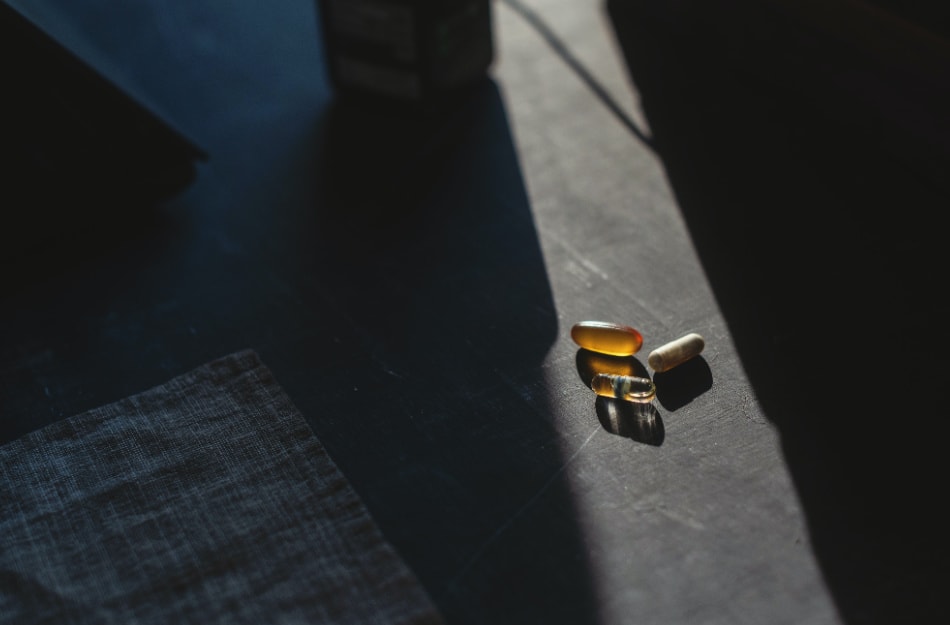
6. Reducing Bad Gut Bacteria, Yeast, and Parasites
For most people who struggle with leaky gut, dysbiosis of the gut microbiome can be the culprit.
When the gut microbiome is out of balance, bad bacteria, yeast, and parasites can overpopulate the digestive tract leading to nutrient malabsorption, leaky gut, and eventually other negative symptoms, such as those mentioned at the beginning of this article.
The first step in microbial balance is to assess your diet. Begin by cutting out the sugars that feed yeast and bad bacteria. When it comes to parasites, be sure to thoroughly cook your meat and wash all your produce before eating it. Also, avoid drinking unclean water and use good hygiene practices.
The next step would be to replenish healthy bacteria levels in the gut through the use of probiotics. Yes, incorporating cultured and fermented foods into your diet, such as milk kefir and water kefir or fermented veggies like sauerkraut and kimchi, will be beneficial, but for the majority of people, a daily probiotic is necessary to adequate restore microbiome bacteria levels.
Once you’ve addressed your diet and you’ve added healthy bacteria supplements into your regimen, it’s time to remove unwanted yeast and parasites. There are a variety of herbs for this purpose. Herbs that are used for yeast are called “antifungals,” and herbs that are used for parasites are called “anthelmintics.” There are many herbs for each of these actions so you’ll want to do some research to find out which herbs are best for your individual needs. You can also work with an herbalist to help you come up with the best herbal formula for you as well.
The last step in balancing the microbiome is to keep your digestion moving so your body is regularly removing toxins. Basically, you need to poop every day. This means eating a high-fiber diet, drinking plenty of water, and making sure your dietary magnesium levels are sufficient.
Think about it. As you replace healthy bacteria and use herbs or other supplements to reduce yeast and parasites in the body, you definitely want to be flushing that waste out of your body on a daily basis. Fiber, magnesium, and water can all help!
Beginning A Gut Repair Program
Now, if you’ve made it all the way to the end of this article, you may be feeling two things.
- One, you may be ready to jump right into a gut repair program right away to support and repair your gut, or
- Two, you may be feeling overwhelmed and not know where to begin.
Thankfully, I have a solution that will help you no matter how you’re feeling.
Let me introduce you to Plexus TriPlex.
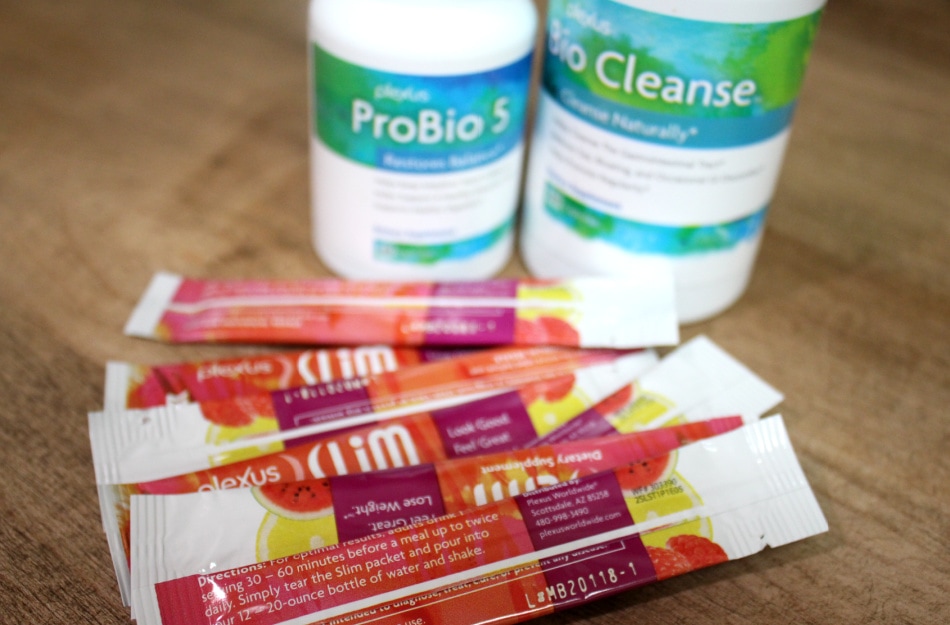
Plexus is one of my favorite plant-based supplement companies, and I’ve been using their TriPlex products for a while now with great results. They’re made with high-quality nutrients and herbs that are specifically formulated for gut health, they’re non-GMO, they are very affordable, and they’re super easy to take. Not only that, but they will help you with all of the things I mentioned in this article!
Yes, you read that right.
These products help to ease inflammation in the body and decrease sugar cravings, replenish the microbiome, and remove toxins from the body.
The TriPlex consists of 3 simple products.
First is the Plexus Slim pink drink. This supplement is designed to help balance blood sugar levels and provide the gut with prebiotics. This not only helps reduce sugar cravings, overeating, and ease inflammation, but it helps to nourish healthy bacteria levels in the gut at the same time.
Next is ProBio5. This is a powerhouse probiotic that not only contains beneficial bacteria for your gut, but it contains digestive enzymes and antifungals as well. This helps to replenish healthy bacteria levels in your digestive tract, help you break down and better absorb the nutrients in the foods you eat, and rid the gut of excess yeast that can wreak havoc on your health.
Lastly, there is BioCleanse. This is an oxygenated magnesium supplement that helps to gently remove waste products from your digestive tract and reduce the toxic load your body is carrying.
When I first sat down to plan out my health and wellness goals for the year, I knew gut health would be a part of it. What I didn’t realize was that by focusing on gut health, I’d see improvement in my other goals as well.
Looking back, I can totally see how each of my goals was interconnected. I just didn’t think I’d see such a significant improvement from gut health alone!
Using Plexus (alongside herbs when needed) has been a great choice for me.

So what about you?
If you are looking to improve your gut health, following these 6 steps will help you get there. Where herbs are concerned, you can research them yourself to find what you need or work with a clinical herbalist to come up with a formula and plan.
And if you are willing to do a good bit of the work yourself, but you like the ease of Plexus TriPlex to help you reach your gut health goals, I’m more than happy to give you more information about the products, tell you how to save the most money and get the best results, and help you get started. Just contact me and let me know you’re interested, and we’ll go from there.
I’m so happy with the results I’ve received from these supplements, and I’m certain that you’ll get good results as well!
Let’s walk this gut health journey together!
REFERENCES:
- Rogers, M.A.M., & Aronoff, D.M. (2016). The influence of non-steroidal anti-inflammatory drugs on the gut microbiome. Clinical Microbiology & Infection, 22(2), 178.e1-178.e9. 6. https://doi.org/10.1016/j.cmi.2015.10.003
- Sequeira, I.R., Lentle, R.G., Kruger, M.C., & Hurst, R.D. (2012). The effect of aspirin and smoking on urinary excretion profiles of lactulose and mannitol in young women: Toward a dynamic, aspirin augmented, test of gut mucosal permeability. Neurogastroenterology & Motility, 24(9), 401-411. https://doi.org/10.1111/j.1365-2982.2012.01969.x
Very nice article with important information. The collagen and intermediate fasting has been great for my health. Better energy, gut health and overall emotional health! I will need to introduce the prebiotics to the day also!
Thanks,
You are very welcome!